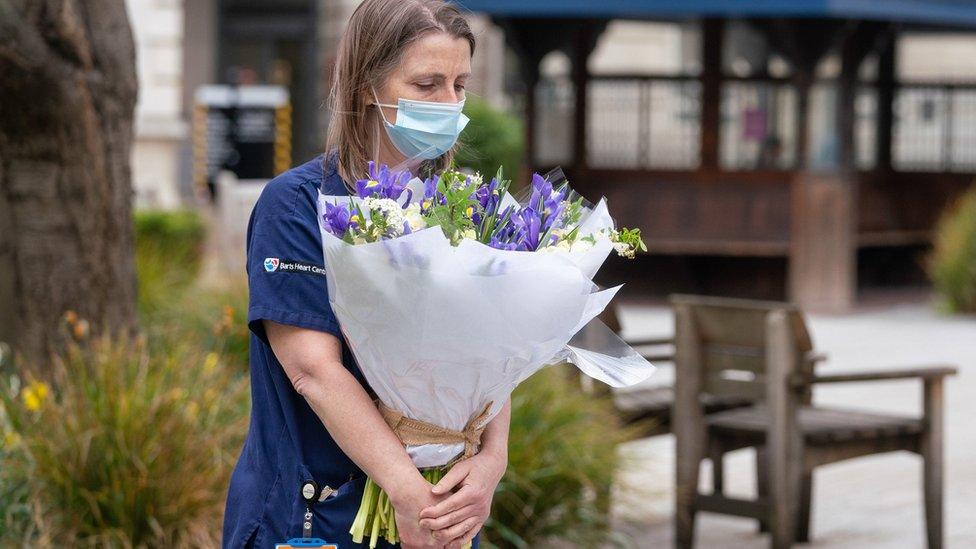Covid: Wales reflects on second anniversary of lockdown
- Published
Isabel says taking part in the trial "makes me feel really a bit special"
Events are taking place this week to mark the second anniversary of the start of the first Covid lockdown and to reflect on the huge impact the pandemic had on so many lives and livelihoods.
But in the midst of so much tragedy there have been positive developments - not least big advances in medical research.
Vaccines which historically took years to develop began to be introduced within nine months and new Covid-19 treatments are being found all the time.
The Welsh public and NHS have also made significant contributions.
Since March 2020 at least 61,724 Welsh participants have been recruited into 102 Covid-19 studies.
According to one of Wales' leading Covid researchers these "huge developments" means research can be done "much better than we ever used to do it".
Prof Adrian Edwards, director of the Wales Covid-19 Evidence Centre (WCEC), also said the lessons would continue to benefit people beyond the pandemic.
Here's a look at some of the Welsh contributions:
Vaccines
At the North Wales Clinical Research Facility, next door to Wrexham Maelor Hospital, people are turning up every 15 minutes for a check up and a blood test.
Each of them have been given a jab only a few weeks ago - which might have been a new Omicron-specific vaccine.
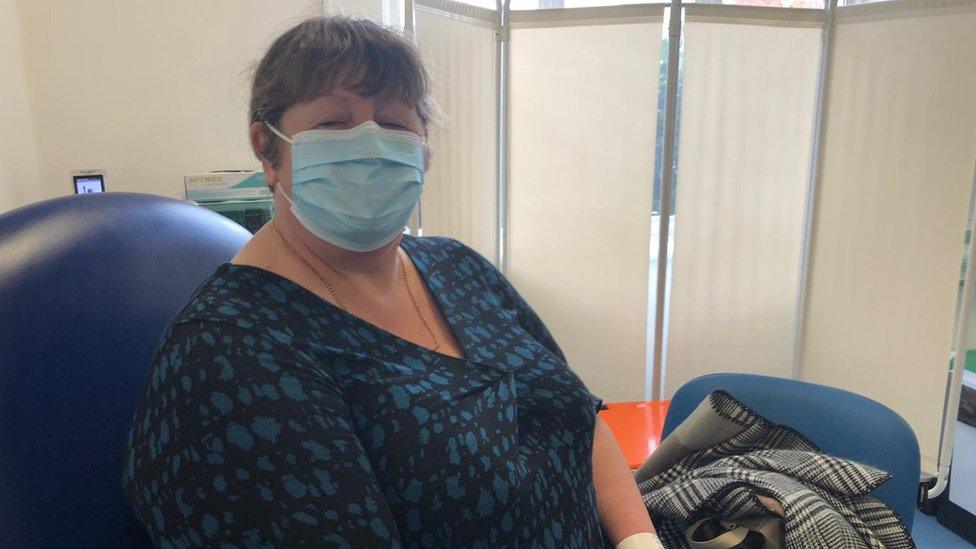
Kim Price travelled almost an hour to take part in the study and says it is important to help other people
"They are trying to find out whether the new vaccine for Omicron is more successful in dealing with infections now," said Kim Price.
"It's a blind study so you don't know which (vaccine) you are going to get - you find out in eight months and they're testing my blood now to see the reaction."
Kim has been eager to take part in research since the start of the pandemic.
"I think it's quite important to have a go to try to help people and if they can learn anything from me then great."
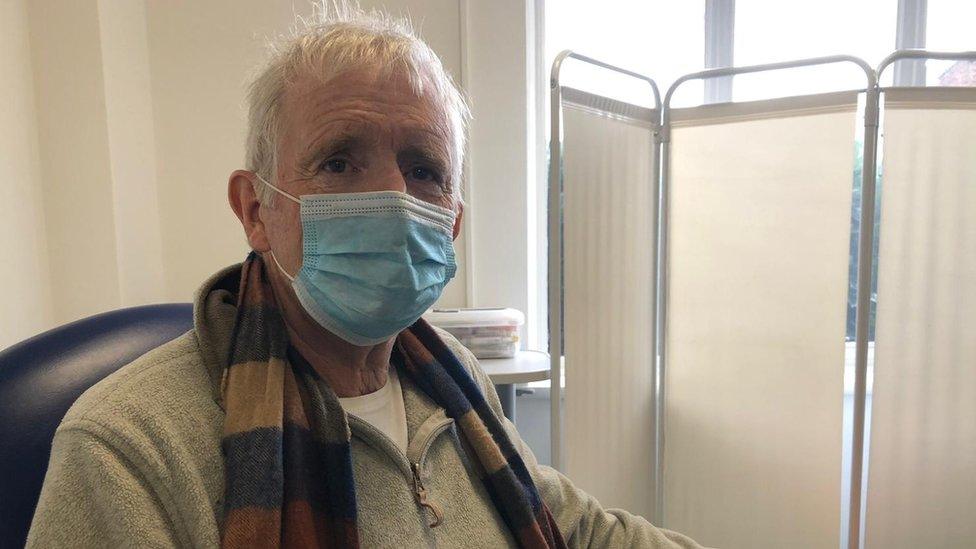
Peter Heys is among those taking part in the trial
Her words are echoed by 72-year-old Peter Heys - another participant.
"I volunteered right at the start of the pandemic and I was invited about a month ago to take part in this one.
"The whole point of coming in is that you are doing something which may well benefit others, it's going to do the public good."
This trial, taking place in Wrexham, as well as a number of other centres across the UK, is called the COV-Boost study.
It could help determine who'll be eligible for another Covid booster in the autumn, what type of vaccine will be offered and the dose.
In north Wales alone there are more than 300 research studies taking place and more than 2,000 people have been recruited so far this year.
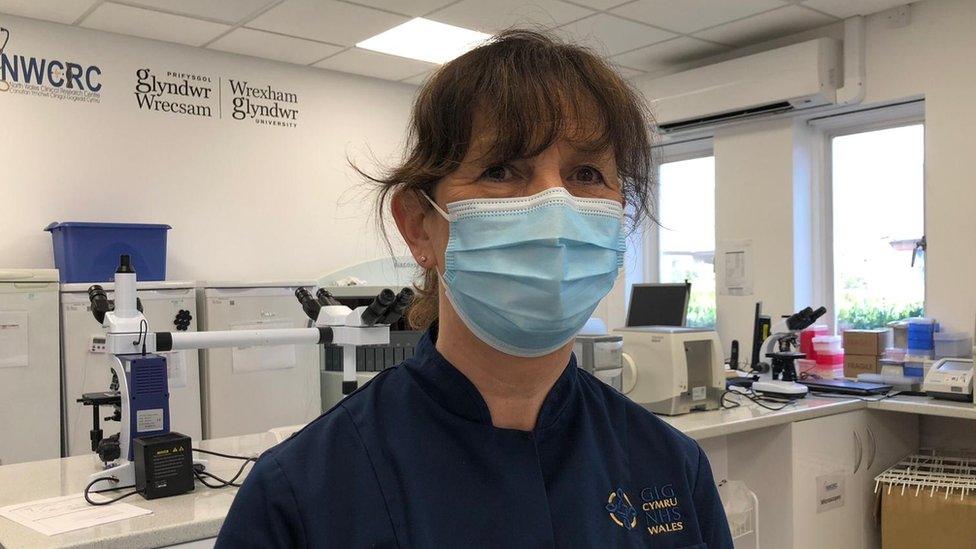
Lynne Grundy said Covid demonstrated the power of research
According to assistant director of research and development at Betsi Cadwaladr health board, Lynne Grundy, the Covid-19 crisis helped accelerate how quickly projects can get under way.
"What Covid did was demonstrate the power of research and how quickly we can get results.
"Normally, if a drug or vaccine is being developed, it can take years.
"The last two years has been really difficult, but in spite of that patients, members of the public here today and the research teams have worked really hard."
However, Lynne admits some research into other conditions had to be paused to deal with the crisis.
"During the pandemic we had to unfortunately pause some other studies and trials, but they are now opening up again and we're transferring what we've learnt and the infrastructure we've built up into those other studies, so it's actually a really busy time in research.
"One example is leukaemia - there's a study looking at giving treatment in a different way so that patients can take tablets and give themselves injections at home, also they're less at risk from not having to go into hospital."
'It makes me feel a bit special thinking that I've helped'
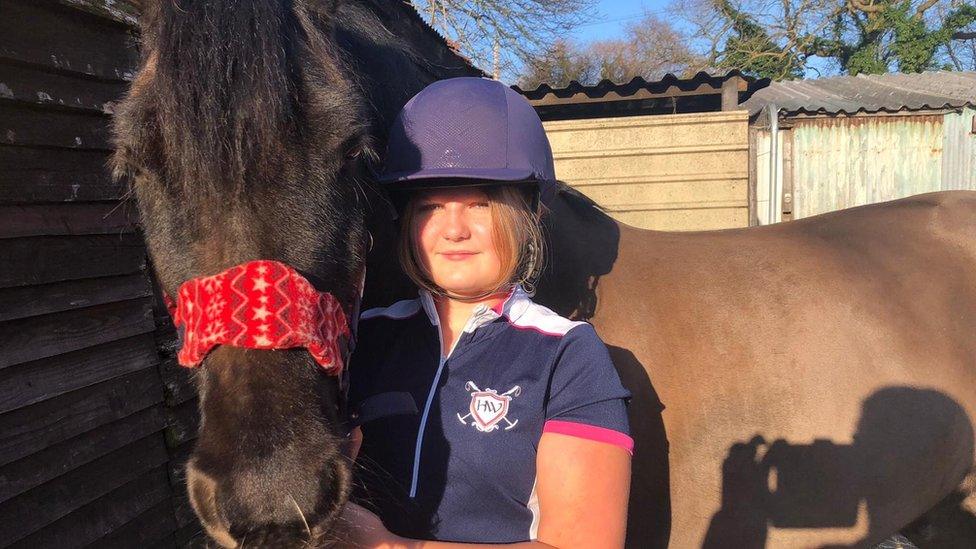
Isabel felt getting involved in the trial would be a great opportunity to help others
One of the most frustrating aspects of the pandemic for Isabel was she had fewer opportunities to go riding with her horse Bolt.
Last year, the 13-year-old from Penarth, Vale of Glamorgan, jumped at the chance of taking part in a vaccine trial, becoming the first person under 16 to be vaccinated in Wales.
The trial was known as the COMCOV Adolescent Study and one of the centres taking part was Noah's Ark Children's Hospital in Cardiff, which looked at how different doses of Covid-19 vaccines affected children between 12 and 16.
"It makes me feel a bit special thinking that I've helped other people, my family and other children like me," Isabel added.
Treatments
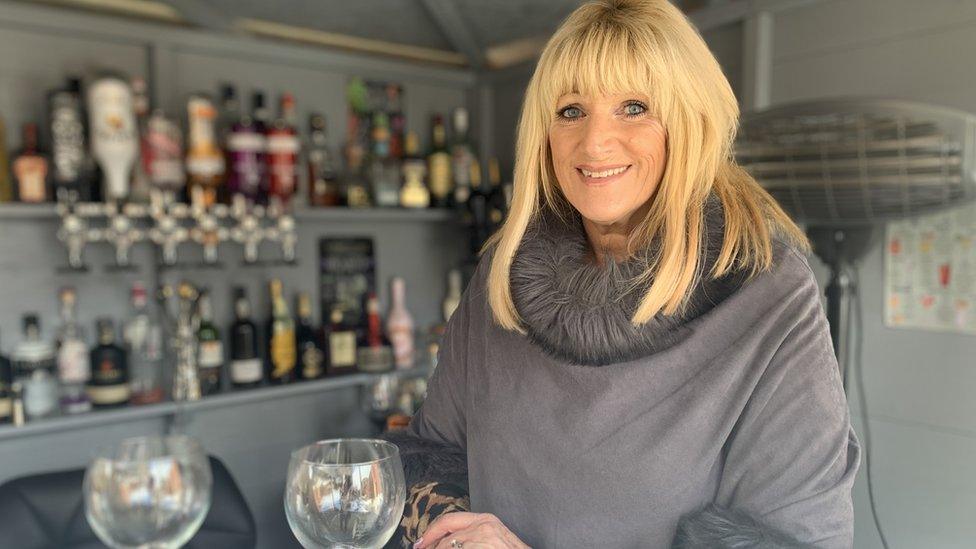
As well as being involved in one of the clinical trials, Bernadette built a bar in her back garden during the lockdown
Until last month, 60-year-old Bernadette Harman, from Magor, Monmouthshire, felt she had been lucky.
She had not tested positive since the start of the pandemic, but then caught Omicron, she thinks, from her husband.
At one point, she had to spend a night in hospital and said: "I got to the stage where my throat was so sore, every time I coughed I felt I couldn't breathe.
"I was frightened to go to sleep so they sent me to the Grange hospital.
"It [Omicron] was worse than I expected, I thought it was like a cold but it floored me for 10 days."
Since testing positive, Bernadette has been taking part in a clinical trial and keeping a daily log of her symptoms.
It is part of the Panoramic study - helping to understand how effective antiviral tablets might be in a patient's recovery.
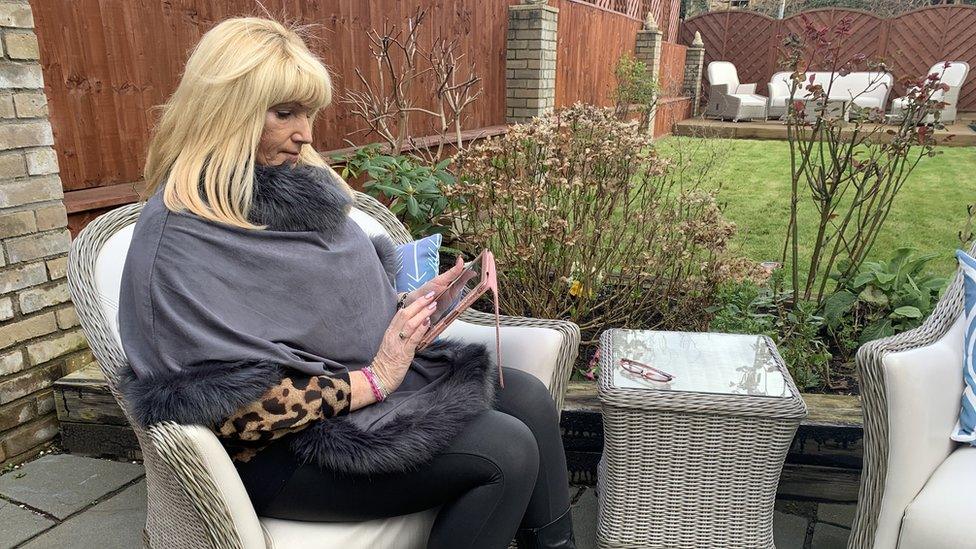
As part of the antiviral trial, Bernadette has to fill in a daily diary
As a grandmother of nine, Bernadette said she wanted to take part to help develop new treatments "because it could help generations to come".
"They told me the more tests they did means that people might be treated at home instead of going to hospital in future. I thought 'what have I got to lose'?"
Evidence
With so much research taking place all over the world, the work of pulling together the most accurate and reliable evidence has also been vital.
The Wales Covid-19 Evidence Centre (WCEC) was set up last year to do this, funded by Health and Care Research Wales.
The expert group has helped influence key decisions such as rules about facemasks and the use of carbon dioxide monitors in school classrooms.
But the group also was charged with bringing together evidence to reassure pregnant women on vaccine safety.
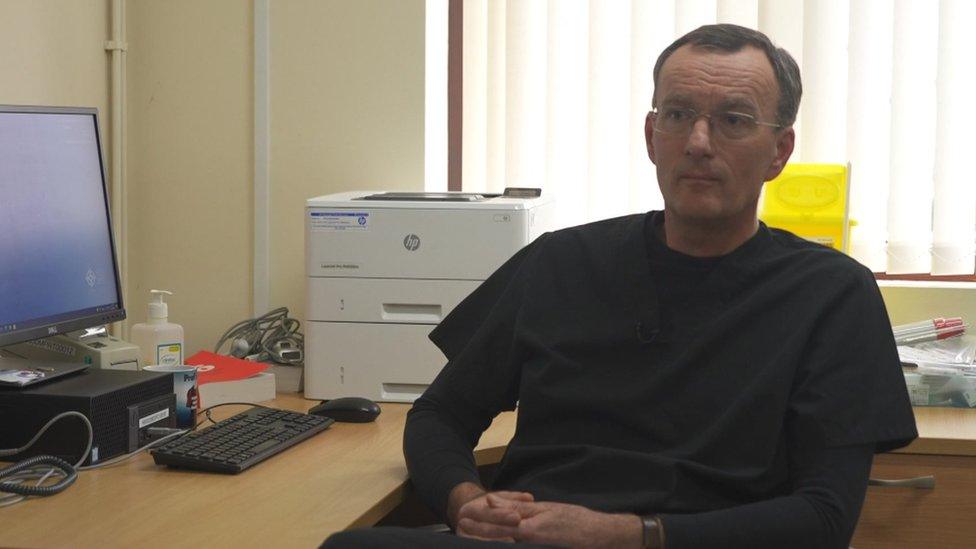
Prof Adrian Edwards say lessons learnt from Covid-19 will continue to benefit us beyond the pandemic
Director of the centre, Prof Adrian Edwards said: "Last autumn, only about five months ago, it became clear about one in 10 people in hospital with Covid in Wales were pregnant women or those who had recently had their baby.
"So our job was to get the evidence together - it found no safety problems for the 200,000 pregnant women who'd had a vaccination at the point we did the review.
"So we fed (the evidence) forward to Public Health Wales as a basis of an information campaign for pregnant women, midwives and GPs."
Prof Edwards argued this type of effort was all the more important given how much unreliable information is spread on social media.
As well as continuing to review evidence he said WCEC would now undertake "world first" primary research looking at things including what influences how willing people are to have boosters, along with wider questions of how society can recover after the pandemic.
"Covid is still here and it's going to go up and down, but there are bigger questions also about how we help children whose education has been disrupted, how we help the NHS recover and how we help older people who need social care - to look how we do things differently in the future."
A special symposium discussing the contribution of WCEC, attended by the First Minister Mark Drakeford, will take place on Wednesday - the second anniversary of the first lockdown.

WILD MOUNTAINS OF SNOWDONIA: Five farming families open their gates and share their lives
BROODING VALLEYS HIDE MURDEROUS SECRETS: DI Cadi John must shine a light into dark places

- Published22 March 2022
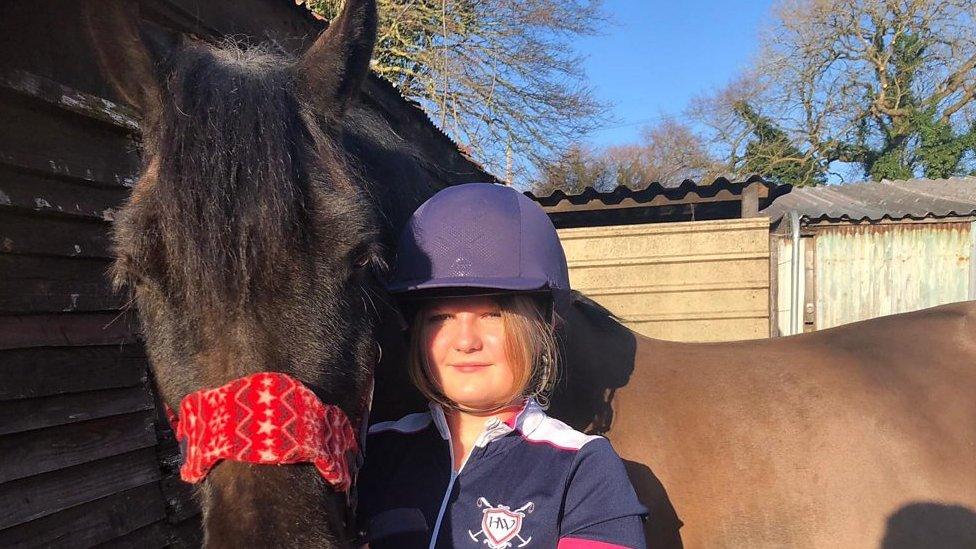
- Published21 March 2022
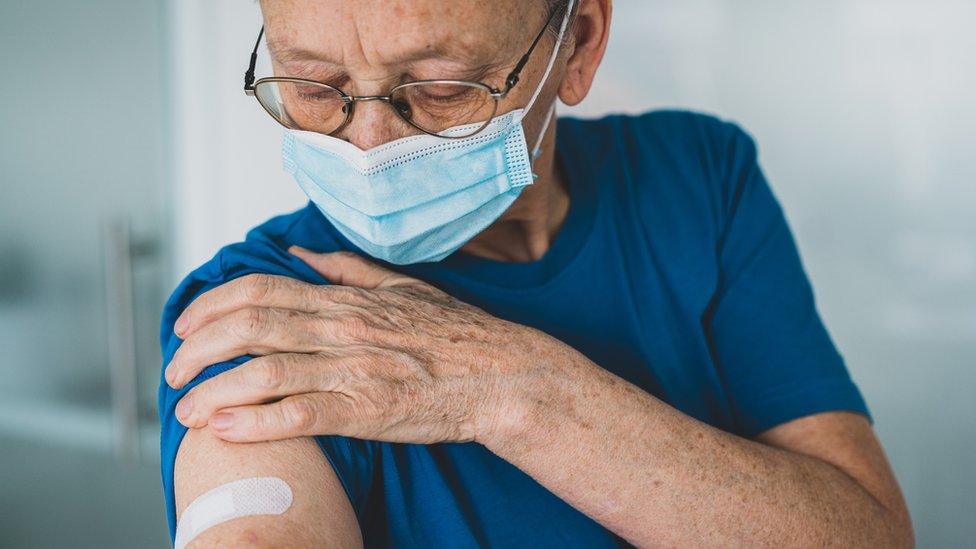
- Published1 July 2022

- Published28 May 2024

- Published23 March 2021
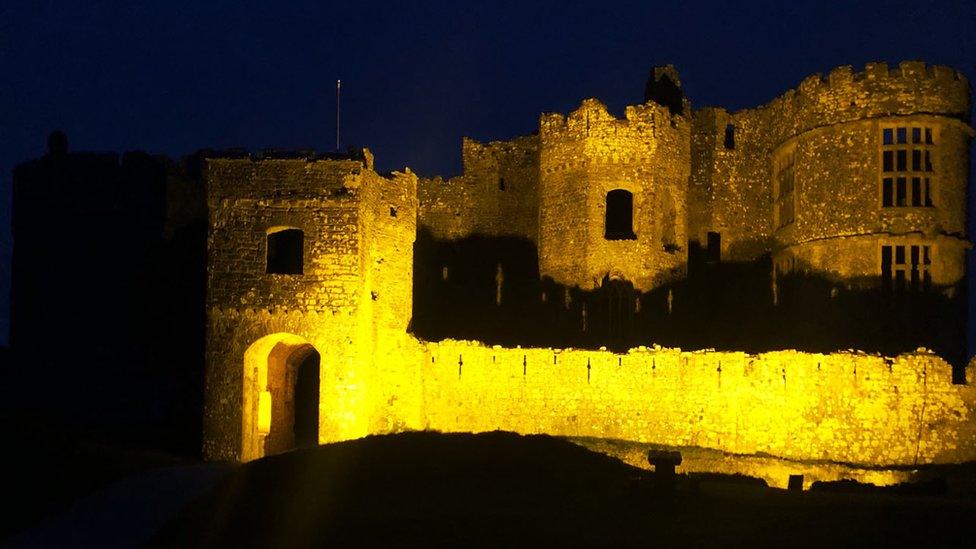
- Published23 March 2021
